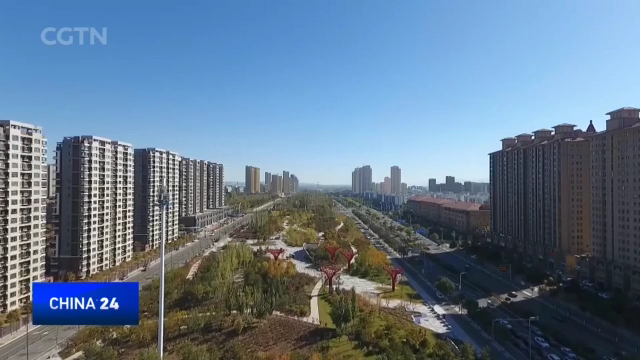
20:58, 04-Nov-2018
China Heating Supply: City of Datong sets up no-coal zone
Updated
20:31, 07-Nov-2018
03:12

Datong, one of the coal capitals of China, has launched a ban on coal use in its urban area. The move is to improve the air quality in the region. Our reporter Hu Chao finds out how local people are getting their heating supply without burning coal.
Yao Jinlian and her family have been living in this house for decades. But her home is among the 4,000 households that will soon be demolished due to city construction. However, there's still sometime before they have to move. And to keep warm as winter approaches, people have bought electric heaters, as burning coal is no longer allowed.
YAO JINLIAN DATONG RESIDENT "I use this electric heating fan for the winter. It's good. The local government doesn't allow us to use coal so I bought this. It's very clean."
Datong initiated the no coal zone built in its major urban area this winter. It covers an area of just over 100 square kilometers. Storage, sale and the usage of coal are banned here. Only power plants and other coal consuming factories are able to burn coal.
ZHANG HAI, CHIEF ENGINEER DATONG ENVIRONMENT PROTECTION BUREAU "Our no coal zone mainly relies on communal heating systems this winter. Those who are not within the system are those households that will soon be demolished. For now, we encourage them to use clean energy for their heating supply."
In fact, Datong started to limit coal usage in urban areas many years ago. Nearly a thousand coal boilers were torn down over the past five years.
More areas were included in the communal heating system, which now covers nearly all of the no coal zone. Although power plants still use coal to generate heat for the communal heating systems, they have achieved ultra-low emissions by using new technologies.
ZHANG HAI, CHIEF ENGINEER DATONG ENVIRONMENT PROTECTION BUREAU "The average daily PM2.5 concentrations here from January to October is 33 micrograms per cubic meter while the number last year was 35. We've made progress and it is a good result."
In the no coal zone, some factories also replaced their coal boilers with gas burners. But even with government subsidies, they're not happy about the high cost of gas.
LYU LIANXI, GENERAL MANAGER SHANXI DONGHUA MACHINERY & ELECTRONICS "Our business is not so good. It's difficult for us to afford an extra 2 million yuan in gas costs every year."
Some rural residents living alongside the no coal zone also frown upon the high cost of gas. Many of them have replaced their coal boilers with gas burners, a requirement by the local government.
HU JIANG DATONG VILLAGER "It's too expensive. We can't afford gas burners with our low income."
HU CHAO DATONG, SHANXI PROVINCE "Local officials say they will expand the no coal zone in the future for better air quality. But these complaints obviously have added difficulty to that. Experts say balancing the benefits of environmental protection with a fair and reasonably-priced source of heating options, remains quite the challenge the government continues to face. Hu Chao, CGTN, Datong, Shanxi Province."

SITEMAP
Copyright © 2018 CGTN. Beijing ICP prepared NO.16065310-3
Copyright © 2018 CGTN. Beijing ICP prepared NO.16065310-3